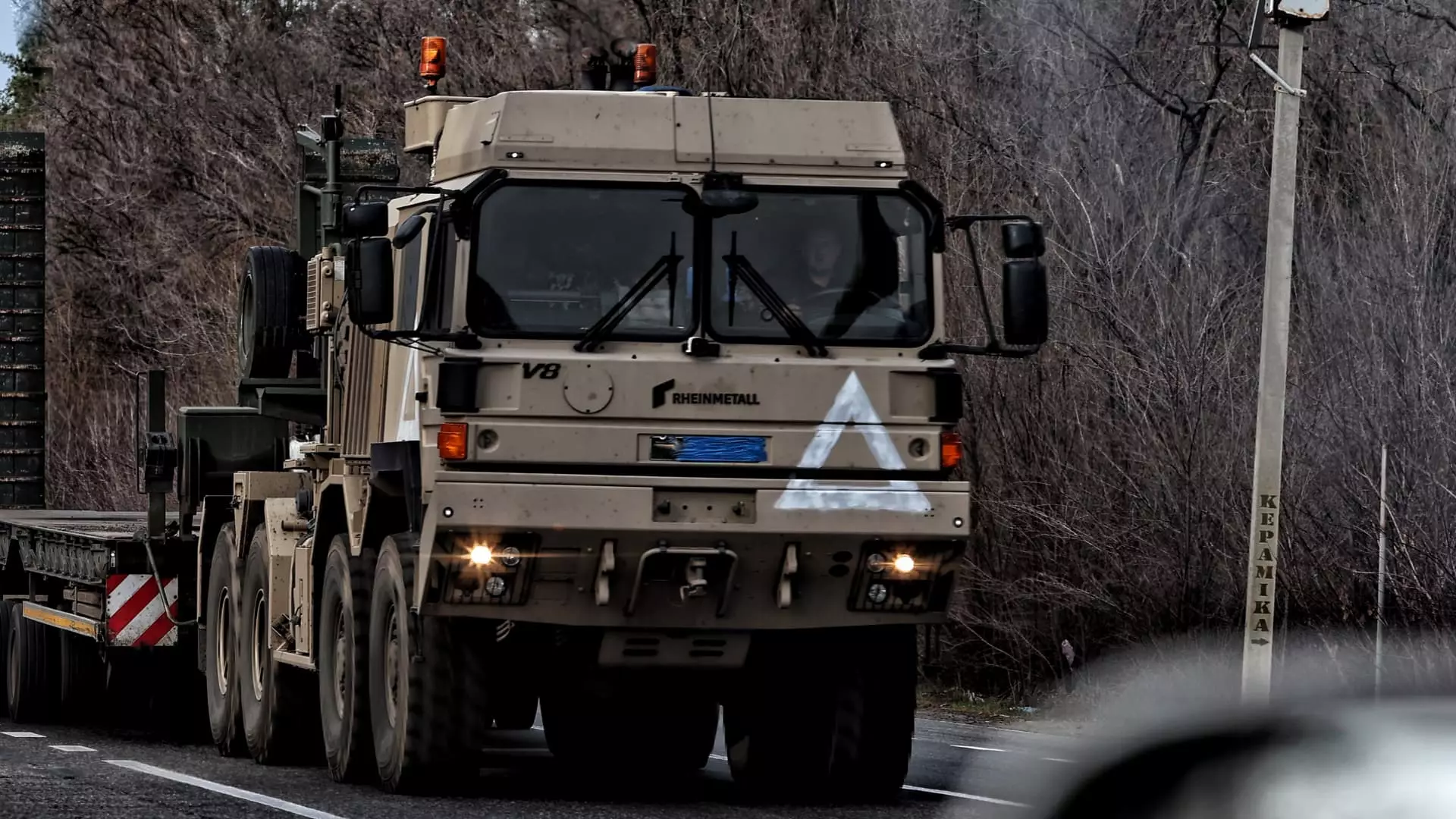In 2025, Rheinmetall anticipates a staggering surge in sales, projecting a growth of 25-30%. This astonishing figure reflects a profound shift in European defense dynamics, accelerated by geopolitical tensions, particularly the ongoing war in Ukraine. With global military demands morphing under the weight of conflict and security threats, one must scrutinize not just the numbers but the implications behind this robust growth within the arms manufacturing sector.
The firm’s preliminary findings for 2024 already show a 36% increase in consolidated sales, with jaw-dropping growth in defense business revenue—up 50%. The stark contrast of past years highlights a market that is reverberating with the echoes of conflict, pushing companies like Rheinmetall into a lucrative embrace with militarization. Yet, while shareholders thrive, we must ask ourselves: at what moral cost does this profit come?
Record Profits Enveloped in Ethical Questions
Rheinmetall’s operating profit ballooned to a remarkable 1.48 billion euros, a staggering 61% increase over previous years. As the European defense landscape shifts, the company finds itself buoyed not only by domestic initiatives but also by responsive strategies in geopolitical hot spots like Ukraine. As the corporation expands its order backlog to an all-time high of 55 billion euros, one can’t help but feel a gnawing concern over the implications of an arms race, led by the very desires of military powers to stockpile weaponry.
What drives this demand for arms at such an unprecedented scale? Nations, particularly in Europe, are feeling the weight of their security responsibilities under an evolving geopolitical landscape. As hospitals and schools struggle for funding, the immediate prioritization of defense spending sends alarming signals about societal values and priorities. Rheinmetall’s success, while notable, also persists against a backdrop of human suffering, raising questions about complicity in global conflicts.
Geopolitical Influences and Ethical Dilemmas
The company’s ambitions are further spurred by a shift in European defense policies catalyzed by external pressures, including the behaviors of NATO allies. U.S. political maneuvering has long demanded more robust defense budgets from European nations. Like a puppeteer, this influence reveals the dark strings behind European defense spending: the motivations for militarization may not wholly be rooted in genuine domestic security needs, but rather reactive measures to external political pressures.
The harsh realities of this international climate stand in stark contradiction to the ideals of European liberalism. Many of us champion peace and diplomacy over weaponization, yet here we see a market growing dangerously reliant on perpetuating conflict. The notion of agility in responding to security needs seems commendable, yet one must question how many more lives may be put at risk as arms manufacturers like Rheinmetall race to fulfill burgeoning orders.
Exciting Prospects or Concerning Trends?
The statement from Rheinmetall’s CEO, Armin Papperger, suggests bullish optimism about the company’s journey from European systems supplier to a “global champion.” Nevertheless, this raises profound ethical questions concerning the broader implications of such growth. The allure of profit can easily cloud morality, leading manufacturers to overlook the finer points of social responsibility as they satiate national appetites for security at any cost.
Furthermore, it’s worth noting that the firm’s eagerness to expand underscores an ingrained system where profits are prioritized over peace. As European leaders push for increases in defense spending, are we witnessing a nascent arms race? The result could be a Europe increasingly defined by militarism, neglecting the underlying motivations for solidarity and diplomacy that many citizens wish to see.
With Rheinmetall’s stock price nearing a scenic 88.3% increase this year, the speculative financial highs cannot distract from the darker side of this narrative. One must wonder whether the profitability of arms manufacturing is a harbinger of instability and conflict, not just for Europe, but for the world as a whole. The millions being spent can either fund armed conflict or be diverted to humanitarian efforts, education, and healthcare—essentially feeding human lives instead of furthering military agendas.


Leave a Reply